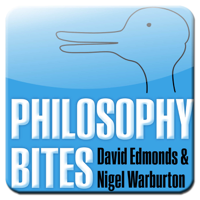
The 7 Best Philosophy Bites Podcast Episodes
1) Cheryl Misak on Frank Ramsey and Ludwig Wittgenstein
Cheryl Misak has recently published a biography of F.P. Ramsey, the great Cambridge thinker who died at the age of only 26, but who nevertheless made a significant impact in several different fields i...Show More
2) Lewis Gordon on Frantz Fanon
Frantz Fanon, who was born in Martinique, died aged 36. He nevertheless made very significant contributions to the discussion of racism and colonialism, influenced strongly by the existentialist tradi...Show More
3) John Cottingham on The Meaning of Life
What is the meaning of life? This is a basic question for all of us. There is also the possibility that life has no meaning whatsoever. In this interview John Cottingham explains his vision of the kin...Show More
4) Richard Reeves on Mill's On Liberty
In this episode of Philosophy Bites Richard Reeves, author of a recent biography of John Stuart Mill sheds light on Mill's classic defence of individual freedom, On Liberty.
5) Robert B. Talisse on Pragmatism
In this episode of the Philosophy Bites podcast Robert B. Talisse in discussion with Nigel Warburton explains what the philosphical movement of Pragmatism was, and some of the differences between the ...Show More
6) Pat Churchland on Eliminative Materialism
Pat Churchland argues that we may need to modify our concepts in the light of recent brain research in this episode of the podcast Philosophy Bites. Philosophy Bites is made in association with the In...Show More
7) Peter Singer on the Life You Can Save
If you saw a child drowning in a shallow pond would you save that child? If you would, why don't you give the small amount of money necessary to save a child from starvation or disease in parts of Afr...Show More
8) Tarun Khaitan on Decolonising Institutions
Narendra Modi has spoken of "decolonising" India including its post-colonial constitution Are philosophical criticisms of this constitution well-founded? Tarun Khaitan of the London School of Economic...Show More
9) Janet Radcliffe Richards on What is Philosophy?
Philosophers argue endlessly about what philosophy is. Janet Radcliffe Richards suggests that a simple way to approach this question is to examine what we think about inconsistencies. She uses an exa...Show More
10) Chike Jeffers on Afrikana Philosphy
David Edmonds talks to Chike Jeffers of Dalhousie Universtity about Afrikana Philosophy. This episode was supported by the Ideas Workshop, part of the Open Society Foundations.